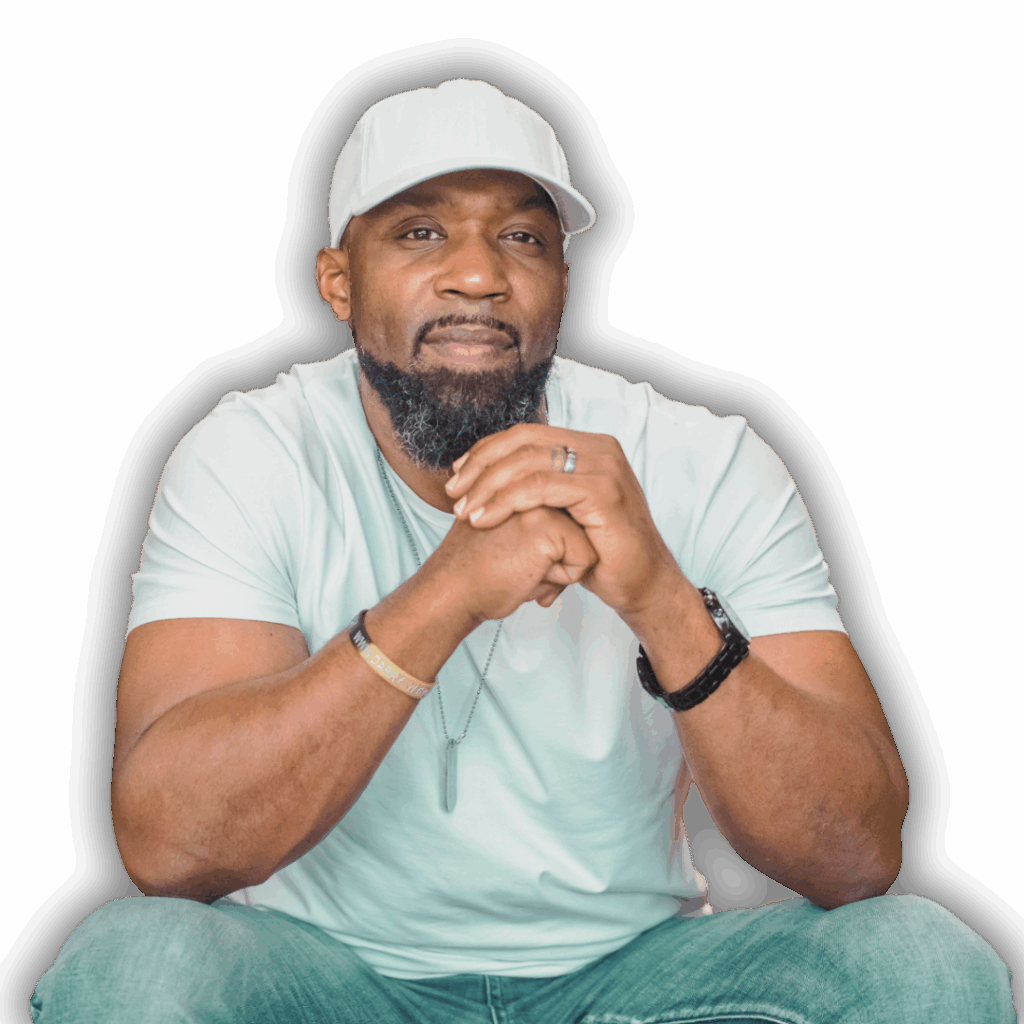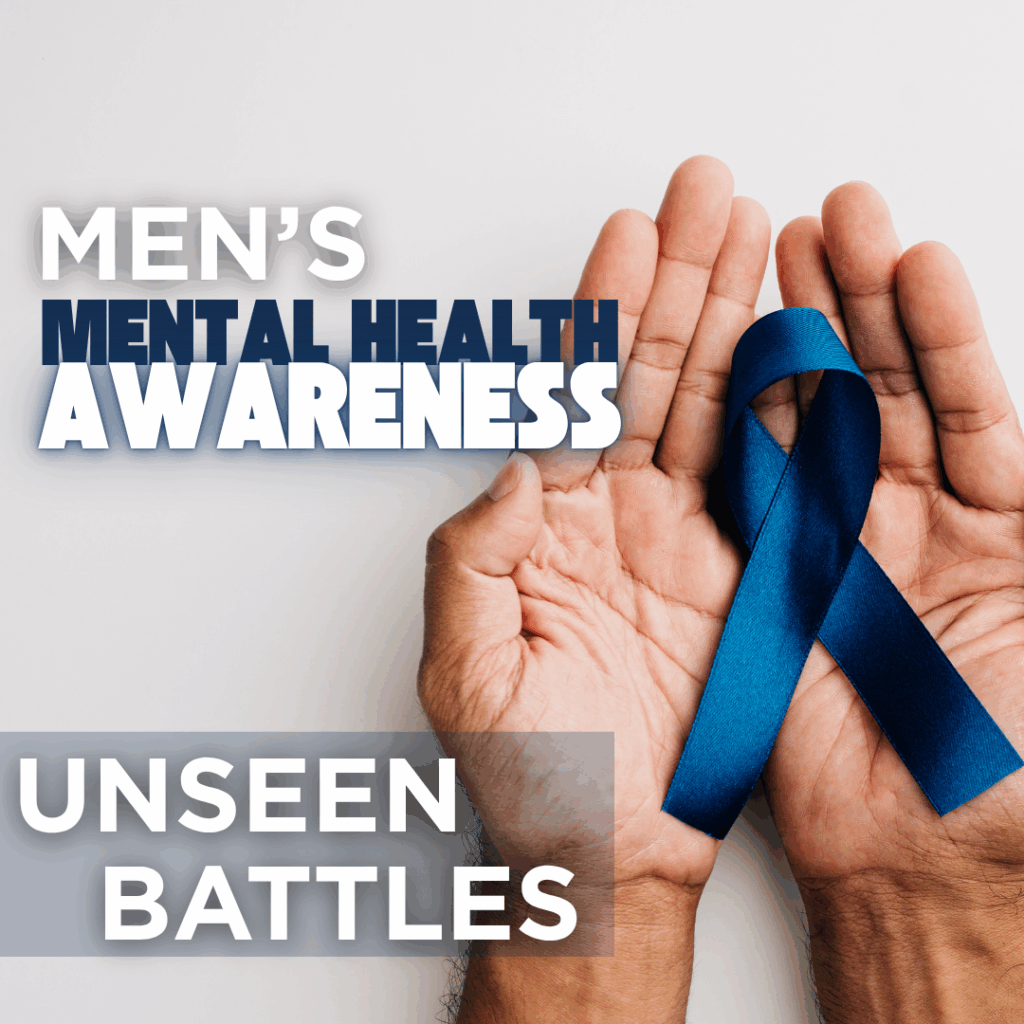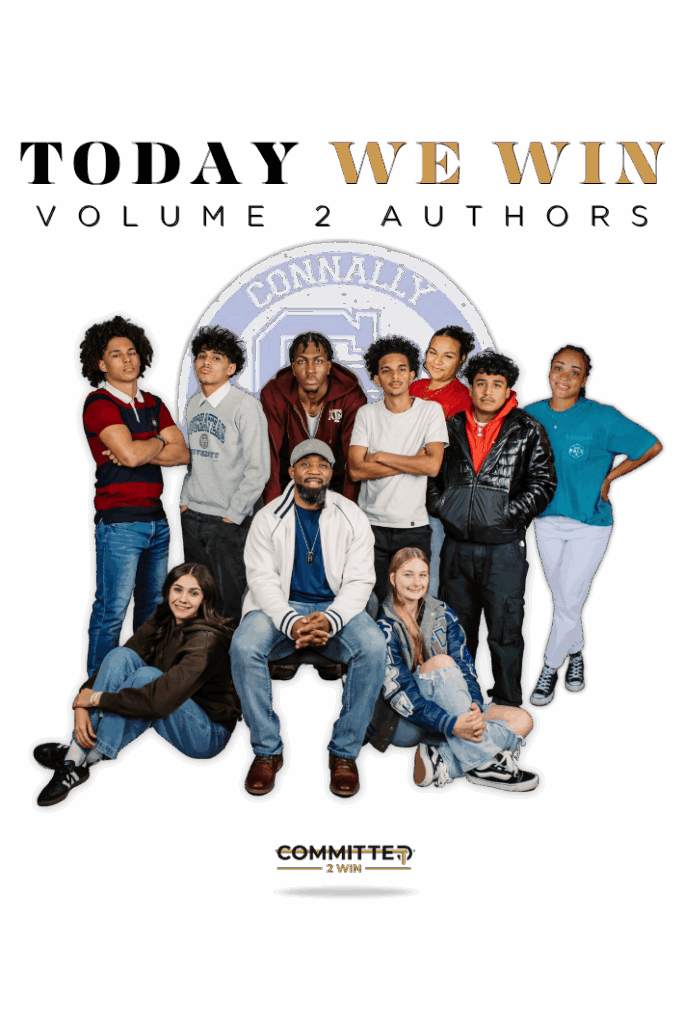Breaking the Emotional Chains that Bind Us
BY: Darryl W. Thomas, Jr.

When we celebrate Independence Day, we pledge pledging allegiance under a banner that declares our freedom. Yet, for countless Americans, freedom is merely surface-deep. Emotionally and psychologically, they remain imprisoned — not by walls or guards, but by trauma that echoes in their minds.
According to the National Center for PTSD, a staggering 70% of U.S. adults experience at least one traumatic event in their lifetimes, and up to 20% — over 44 million people — will develop PTSD symptoms. These aren’t just numbers — they reflect deeply lived struggles that shackle hearts long after the event.
The Hidden Chain of Trauma
Freedom is never free — not from the battlefield, prison bars, or personal loss. As a U.S. Marine who served in Kuwait (2003) and Iraq (2004), I experienced the chaos of combat firsthand. In war, you see the enemy. In life, trauma can be invisible, internal, and infinitely more destructive.
I, too, carry these scars — not just from war, but from my youth. A string of betrayal, neglect, and emotional distress left its mark. I learned that true freedom is not cheap, and it comes at a hefty price. This is especially true when it comes to trauma, anxiety, wounds, and guilt.
The 11-Figure Price Tag
Freedom demands one thing: F-O-R-G-I-V-E-N-E-S-S. This 11-figure price tag requires courage, vulnerability, and grace. Many people are not willing to pay such a price but it’s the essential currency that buys freedom.
When it comes to forgiveness, there are five strategies to consider:
1. Forgive Others- Holding onto anger or pain only strengthens the chains. Release those who hurt you.
2. Forgive Yourself- Guilt is a cruel jailer. Recognize that you did the best you could. Choose grace over shame.
3. Seek Support- Therapy, prayer, or mentorship isn’t a sign of weakness — it’s courage in motion. Freedom often needs someone beside you.
4. Narrative Liberation-Tell your story — whether to a trusted ally or through journaling. Reclaim the narrative from the eyes of trauma.
5. Serve Someone- Else Helping another person reveals your resilience and reclaims your power. Gratitude and purpose heal the heart.
Chains Upon Chains: Youth Behind Bars
The most heartbreaking prisons are emotional and invisible. In Texas, juvenile offenders are often chained emotionally by trauma. Between 75–93% of incarcerated youth have experienced at least one traumatic event, compared to just 34% of their peers. Many arrive emotionally wounded and leave further scarred.
That’s why Hope for the Underdogs isn’t just a summer initiative based on literacy — it’s a freedom movement. By equipping these young men and women with stories of triumph (TODAY… I WIN, TODAY WE WIN Volumes 1 & 2), we’re planting seeds of liberation. We’re offering them a path to forgive, heal, and break the chains that bound them.
You Can Join the Freedom MissionFreedom from trauma isn’t an abstract ideal — it starts in our communities. Here are four ways you can join the mission:
- Sponsor a Youth: Your support provides books and mentorship, forging pathways to healing.
- Share the Word: Spread our mission through your network. With awareness, we dismantle stigma.
- Partner with Hope: Host workshops, donate resources, or volunteer time.Invite Dialogue:
- Talk about trauma and forgiveness at church, school, or community events.
Final Call: Freedom Is Waiting
Freedom isn’t a moment — it’s a journey that reads: “To those who hurt me…but most, to the parts of myself I blamed.” By forgiving others and ourselves, we dismantle emotional prisons and allow our souls to breathe.To the parents, pastors, educators, and patriots reading this — I challenge you: will you pay the price of freedom? Let forgiveness — spiritual, emotional, personal — buy your liberation.Help our children feel freedom’s promise this summer through Hope for the Underdogs. Your sponsorship and voice can help set a generation free — literally, emotionally, spiritually.
This July, let’s not only celebrate freedom — let’s live it. Forgive, heal, and combat emotional imprisonment — for your family, your community, and the undamaged hearts waiting for us at Hope for the Underdogs.

Darryl W. Thomas, Jr. is a U.S. Marine veteran (Kuwait, 2003; Iraq, 2004), leadership expert, award-winning speaker, and five-time bestselling author. A devoted family man—married 24 years, father of five, and founder of Committed 2 Win—he’s spent over 20 years helping individuals heal, lead with integrity, and break cycles of trauma.Connect with Darryl📧[email protected]🌐 www.committed2win.com/hopefortheunderdogs 📺 YouTube Live Tuesdays @6 pm CST: @1DarrylWThomas
By Darryl W. Thomas, Jr.

A Battle Worn Long After the War
What if I told you that men are five times more likely than women to apply a permanent solution to a temporary problem? Would that shock you? Afterall, we as men like to get the job done, right? Well in this case it is sad but true… yet wrong.
More than 49,000 Americans died by suicide in 2022, and males accounted for nearly 80% of those deaths — nearly five times higher than women — highlighting a silent crisis among men, especially fathers and husbands.
For family men, this pressing reality is a reminder: the battles fought on the home front are as real and field-tested as those in overseas combat.
Comparing Wars: The Marine and the Dad
Having served our country from 2000 to 2005; I was one of many called into wartime situations. As a U.S. Marine, I spent time in Kuwait in 2003 and Iraq in 2004. One prominent lesson that I learned is that battle fatigue isn’t left on the battlefield. PTSD, a brutal companion in wartime, finds its way home. Making the internal battles more complex and difficult to conquer.
A year after leaving the Corps, my wife began to show signs of a debilitating, incurable, and hereditary disorder as she was pregnant with our third child. To say that it was challenging is a gross understatement. So, my load was comprised of dealing with PTSD coupled with trying to stay present for a sick spouse, maintaining emotional availability for three children – ultimately five, operating a business, working a 9-5 job and serving the community.
I discovered that I was not the only man dealing with such heaviness. I also learned that, in combat, the enemy is visible. At home, the enemy often hides in exhaustion, emotional silence, guilt, and the heavy expectation to carry all burdens alone.
As a family, your peace is vital. In light of June being the month that we celebrate fathers and Men’s Mental Health Awareness month, I implore all fathers to consider the following.
Three Ways Fathers Can Protect Their Peace
- Battle Begins with Boundaries- Protect your non-negotiable time for family dinners, prayer, and exercise like you would mission-critical operations. Leave work at work. Be where your feet are. Oftentimes, your presence is more important than your provision. It’s here that mental and spiritual strength are safeguarded.
- Deploy Your Support Network- In the Corps, every Marine has a battle buddy. At home, you can create a similar system — regular check-ins with another father, a mentor, or a counselor help fight isolation and toxic stoicism. Don’t be that lone wolf because a lone wolf will starve.
- Own Your Emotional Scars- PTSD and anxiety don’t look a certain way. I don’t care how well you try to dress it up, it will reveal itself. When untreated it can cause collateral damage. Success at work cannot mask the emotional scars. Your community involvement cannot conceal unhealed wounds.
Courageously admitting that there are issues begins the path to healing. Again, don’t face them alone. Taking that first step is an act of courage that models strength for your family.
Three Additional Strategies to Secure the Home Front
- Routine Physical Readiness:Complete at least three workouts per week — whether it’s a brisk walk around the neighborhood, a ruck march, a lifting session in the garage or weight-training at the gym. Implement a routine of bodily exercise to regulate stress, release endorphins, and maintain clarity.
- Spiritual Resupply:Engage in weekly (if possible, daily) spiritual practices — Bible study, meditation, or prayer walks — to replenish the inner well from which you lead. This strategy is a gamechanger.
- Intentional Debriefing:Schedule a monthly “T-time discussion” with your spouse. The more frequent the discussion, the better. What is T-time? It is short for truth time. This is a moment to discuss wins, struggles, and emotional needs honestly without judgement. It invites connection and clarifies purpose.
Closing Words to the Warriors at HomeMen, the uniform may come off, but your battles don’t. Strength is not measured by how much you can carry — it’s proven by how bravely you choose healing. Your legacy isn’t built in silence but in the courage to open up, rest, and invite support.
Mission Orders Start Today: Choose one tip and commit. Join the Brotherhood: Be in the house—virtually—this Tuesday at 6 pm CST on YouTube Live (@1DarrylWThomas) for my REAL Talk Tuesday session. Let’s stand together and talk real. https://www.youtube.com/@1darrylwthomas/streams Engage Back: Comment on what tactic you’re using to guard your mental health or share a story that inspires.And please think about supporting our Hope for the Underdogs summer initiative. A father’s healing helps a generation bloom. Your participation can make a difference.
http://www.committed2win.com/hopefortheunderdogs

Darryl W. Thomas, Jr. is a U.S. Marine Corps veteran, leadership development expert, award-winning speaker, five-time bestselling author, and at-risk interventionist with over two decades of experience. He is the CEO of Committed 2 Win, a personal and leadership development community focused on inspiring, challenging, and empowering young people and adults to overcome adversity and take ownership in becoming the best version of themselves. Beyond his professional achievements, Darryl is a devoted family man, married to his high school sweetheart for 24 years and father to five children: a U.S. Marine, a TCU graduate, a University High School graduate, and two University High scholar-athletes.

A Crisis in the Shadows
As graduation caps soar, a sobering reality grounds us: during the 2020–2021 academic year, over 60% of college students met the criteria for at least one mental health problem, according to the Healthy Minds Study, which collects data from 373 campuses nationwide (Lipson et al., 2022). This statistic underscores the urgent need to address mental health as students transition into adulthood.
The Power of Storytelling
At Connally High School in Waco, Texas, students confronted these challenges head-on through the Captains Circle Peer Leadership Program. Their experiences culminated in Today We Win: How Real Students Found the Answers to Life’s Tests (Volume 2), an anthology of personal narratives that delve into struggles with bullying, family dynamics, academic pressures, and self-doubt. This project not only provided a therapeutic outlet but also fostered a sense of community and resilience among the participants.
Celebrating Resilience
Special recognition goes to five remarkable students—Isaac, My’Toria, Caleigh, Bryson, and Alaina—who graduated last week. Their contributions to the book exemplify the courage and introspection needed to confront mental health challenges head-on. Their stories serve as beacons of hope for peers facing similar struggles.
Two Strategies for Supporting Student Mental Health
- Encourage Open Dialogue: Create safe spaces where students feel comfortable discussing their mental health without fear of judgment.
- Promote Access to Resources: Ensure that students are aware of and have access to mental health services, including counseling and support groups.
An Invitation to Empower
As we celebrate Mental Health Awareness Month and the achievements of the Class of 2025, we invite schools and communities to partner with Committed 2 Win. Together, we can create safe spaces, establish support groups, and promote sustained student success for the 2025–26 school year.
References
Lipson, S. K., Lattie, E. G., & Eisenberg, D. (2022). Trends in college student mental health and help-seeking by race/ethnicity: Findings from the national Healthy Minds Study, 2013–2021. Journal of Affective Disorders, 306, 138–147.

Darryl W. Thomas, Jr. is a U.S. Marine, leadership development expert, award-winning speaker, five-time bestselling author, and at-risk interventionist with over two decades of experience. He is the CEO of Committed 2 Win, a personal and leadership development community focused on inspiring, challenging, and empowering young people and adults to overcome adversity and take ownership in becoming the best version of themselves.Beyond his professional achievements, Darryl is a devoted family man, married to his high school sweetheart for 24 years and father to five children: a U.S. Marine, a TCU graduate, a University High School graduate, and two University High scholar-athletes.Let’s continue this conversation and ensure that every student knows they are not alone on their journey.Follow Darryl at LinkedIn, X and YouTube.
by Josh Lawson, Mentoring Advocate and Director of Community Engagement at Antioch Community Church
There is an old adage that says, “The whole is greater than the sum of its parts.” Or as some pessimists would chide, “The HOLE is greater than the sum of its parts.” As we look around our city, we can see that there are some incredible things happening. One of the main things that we have also noticed is that many of those great things are not working in unison.
The reason is pretty simple: working in unison is messy and it takes time. And many of the people doing these great things are just like me: they are “get-it-done” type of people. They don’t want to talk about doing something; they simply want to do it.
But what happens all too often is that we begin “doing” and we duplicate services, or we take on ministries or events that we aren’t great at. We expend so much energy doing so many things and at the end of the day we are tired and wondering if it’s even working.
If I have learned anything while working in our city it is this simple truth: You have to focus on what you do great AND make the effort to work with others.
It is only when you combine these two that you really begin to see the power of Collective Impact happen.
Several years back during the World Cup hosted by South Africa, the power of Collective Impact took center stage. During each match you could hear a slight droning buzz. And then without warning that buzz would turn into a resounding, earth-shaking roar.
WAAHHHHH…WAAAHHHHH” It sounded like a million bees were swarming our living rooms. What was the culprit? A poor sound system? A mis-feed through the cable provider? Nope. It was the sound of tens of thousands of vuvuzelas being trumpeted in unison by tens of thousands of rabid fans.
One fan playing one vuvuzela made no impact. It’s doubtful it could be heard on the field much less across the globe on television. But tens of thousands of fans blowing their horns as loud as they could muster literally impacted the world.
They each picked up their own vuvuzela, and they joined together for a collective impact.
For our community here in Waco, there are great things happening. And I believe that if we want to see some even greater traction happen, the next step is for each of us to consider what we are great at and FOCUS on doing that with excellence AND join forces with others who are doing incredible work.
 This week’s Act Locally Waco blog post is by Josh Lawson, Director of Community Engagement at Antioch Community Church. One of his passions is mentoring. If you would like to learn more about mentoring in Waco, please visit this website to learn how you can get involved: www.mentorwaco.com . If you would be interested in blogging for Act Locally Waco, please email [email protected] to express your interest.
This week’s Act Locally Waco blog post is by Josh Lawson, Director of Community Engagement at Antioch Community Church. One of his passions is mentoring. If you would like to learn more about mentoring in Waco, please visit this website to learn how you can get involved: www.mentorwaco.com . If you would be interested in blogging for Act Locally Waco, please email [email protected] to express your interest.
by Josh Lawson, Director of Community Engagement, Antioch Community Church
Besides being one of the longest and most annoying children’s songs known to man, “There’s a Hole in My Bucket,” is actually a great representation of what community development feels like. If you haven’t heard the song before, it is a winding conversation between “Dear Liza” and “Dear Henry” where Henry is trying to fix the hole in his bucket, but his attempts to fix it only lead him to finding more problems. Eventually he is left back at the original problem: the hole in his bucket. We all know that there is a problem in our community, but all too often the solution to that problem only brings up more problems! The educational system is not any different.
We know that kids need a better education, but as we dig in deeper and try to come up with a solution, we begin to see a web of problems. Poverty, hunger, lack of parental involvement, homelessness and learning disabilities all come together to form a massive game of pick-up sticks.
All too often, the magnitude of the problem causes those who can create the greatest change to simply give up.
But, that is never the answer. You have to start somewhere. And, I believe that for our community, mentoring is a fantastic place to start.
Now, don’t let me fool you, mentoring is not a silver bullet. We will not bring an end to poverty by simply mentoring kids, BUT it is one of the key components to helping us build a better community.
Take a look at a few of these powerful stats:
- Youth with mentors are: 46% less likely to begin using illegal drugs, 25% less likely to begin using alcohol, 37% less likely to lie to a parent, and 32% less likely to hit someone.
- Those with a mentor have also shown that they have better attitudes about school, higher college enrollment rates, enhanced self-esteem, improved interpersonal skills and decreased drop-out rates.
- And those youth who graduate high school are less likely to be imprisoned, become a single mother or become unemployed.
Mentoring can make an incredible difference. January has been designated as National Mentoring Month, so it is the perfect time to set a goal to become a mentor for a youth this year. Even if you can’t be a mentor yourself, you can become an advocate for mentoring by encouraging others to get involved in the life of a young person. It matters and it is a small step in the right direction.
There is a hole in our bucket, but we can do something. We can be a mentor.
To find out more about being a mentor or to connect with a local mentoring agency, please feel free to email Josh Lawson at [email protected]. For a list of organizations in town with mentoring programs, click here: Mentoring Organizations in Waco.
 This week’s Act Locally Waco blog post is by Josh Lawson, Director of Community Engagement at Antioch Community Church. If you would be interested in blogging for Act Locally Waco, please email [email protected] to express your interest.
This week’s Act Locally Waco blog post is by Josh Lawson, Director of Community Engagement at Antioch Community Church. If you would be interested in blogging for Act Locally Waco, please email [email protected] to express your interest.
